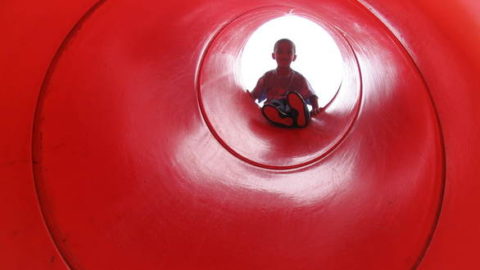# Flexibility # rigidity # set shifting # insistence on sameness # rolling with the punches
Ability to be nifty with changes in life in small or big things will ease stress. If your child resists change, digs heels, rigid in thinking and throws a tantrum (or get irritable if older) every time he or she needs to adjust to change, then, you have a problem to solve. Gradually, there is a commitment as parent to coach them to accept change in small steps. I have seen rigidity in daily routines, erasing their own writing and rewriting, commanding sibs and peers to be perfect, screaming when asked to stop video games, fighting at homework time as you are not teaching math in exact same steps as the teacher, over reactive to schedule changes, not willing to try new food tastes and the list goes on.
In neurocognitive testing, flexibility is tested through computerized tasks involving shifting from one set of learned pattern to another through new learning. Such a test is called set shifting, where children who are rigid can get stuck and make errors. They get frustrated easily. They become loud and abrasive in such situations of having to shift. So how do you as parent or teacher help such child to expand in their thinking?
EXPAND
This is linked to improving the perspective taking. The over focus on their concrete thought need to expand to include other possibilities. Others’ point of view. Other ways of getting from A to B. Gentle explanations and challenges to ask them to generate alternatives will help, and may even become a play (I know, I know, only when in good mood).
EXPLAIN
They need to be gently explained the impact of their intensity, which is socially not acceptable or even safe at times. They are used to highly tolerant parents, and do not distinguish private from public behavior. Concretely explain that public places require extra skills.
PREPARING THEM FOR ANY CHANGE
Any changes like going to camp, dinner party at home with extra people visiting, going to the dentist, or any change in usual routine need to be announced to help them transition. Otherwise, your fear of their reaction may stop you from telling them till the last minute. It may backfire. Ease in the change with gentle tone. If they react, well, let them. Not telling is worse.
FIND THEIR OWN RESOURCES: THEY HAVE THEM INSIDE OF THEM
I often think these children have resources to know the right from the wrong behaviors, but often, the rigid focus coupled with impulsivity makes it hard for them to choose the right thing to say or do. So helping them to refocus on the internal resources to get them to expand on their own thinking is a worthwhile exercise. “You know what to say. Stop and find the right answer from your own treasure box-YOU.” Surprisingly, they are very capable if given the margin of choice, time and space to do so.
BIG THINGS- SMALL THINGS
Introducing concept that we use as adults on not to fight battles, but only wars- can be made simple. Is it worth fighting? Is it big or is it small? Introduce a few abstract words like “roll with the punches.”
OPINIONATED VS. LIKEABLE
Teach them re announcing opinions – Saying constantly what you do not like in others to them in their face is going to hurt than help to build friendships. No one really cares whether you like a certain thing or not (more like critical remarks) especially if you are going over board with calling on others and poking them. You can keep those opinions private. Use filters. These negative opinions hurt people and are useless if given to people not close to you or if given very often.
PROACTIVE SKILLS
- Use pause mode often
- Compliments are good life savers
- Back-off from negative comments
- Generally be positive with people and think of ‘adding value’
- Observe others’ cues and let go: if you find yourself annoying and others look disinterested
- Be kind
INTRODUCE THE WORD WISDOM
Wisdom requires abstract thinking. So teach them to ‘catch themselves’ when they lose perspective taking or lack empathy in other words- by gently helping them to think further; get them to reboot their thinking.
EASY ON YOURSELF
These inflexible people are striving for some control and perfection, under the cover of doing the same thing or what they prefer. The best gift you can give to ease the tension and get them to cooperate is to be easy on themselves, give themselves a break. That all will be well with time and practice. People need to feel safe and strong to try anything new.
AND FOR YOU AS PARENT/TEACHER
- Give yourself plenty of time to listen, guide, let go, reboot, try again, teach gently, and help with discipline through practice till it sinks in some. Listen, there is no shortcut for this! It is hardwired some, but we hope to introduce good new habits. Hopefully they will adapt to new flexible way.
- What not to do is- speak for them, give excessive explanations so much so that they depend on you to act as their prefrontal cortex. One way to avoid is to check yourself now and then if you are making them think through some via Socratic questions- Why What When How and so on.
- Respect and partnership in solving problems will elicit cooperation.
- Sometimes, as they dig heels, letting go, taking a break from work at hand and from each other, regrouping is good. Hopefully you will be feeling peaceful by then, and radiate that peace to influence those around you and your child. When kids see you stressed, they see you controlling to get it better, and they fight back. Sometimes “whatever” attitude helps. Especially in trying new foods.
- Know that with age and development, children yield and improve a great deal. Some inflexibility and rigid habits may remain. Again, let go of the small stuff.
- Don’t bend backwards and work hard when everyone is in a bad mood. Try mostly when the mood is good or when they are receptive.
- Remind yourself that you can only do what you can do as humanly possible.
















Very interesting article…and so gentle on thought process.
See, VJ, I declare you as my official moderator:)! Any way if you are not gentle, things do not go smoothly and it backfires. Furthermore, I also need to be gentle in teaching the parents a way out of their own frustrations and respond to their eagerness to build resilience. There are so many nuances. Unless computerized tasks to learn flexibility is practiced for 10,000 hours (even then, AND if kids even do the exercises to learn set shifting- as they resist), nothing will change hardwiring in a hurry. So reality check: try hard to imbibe the skills in real world, in real life!